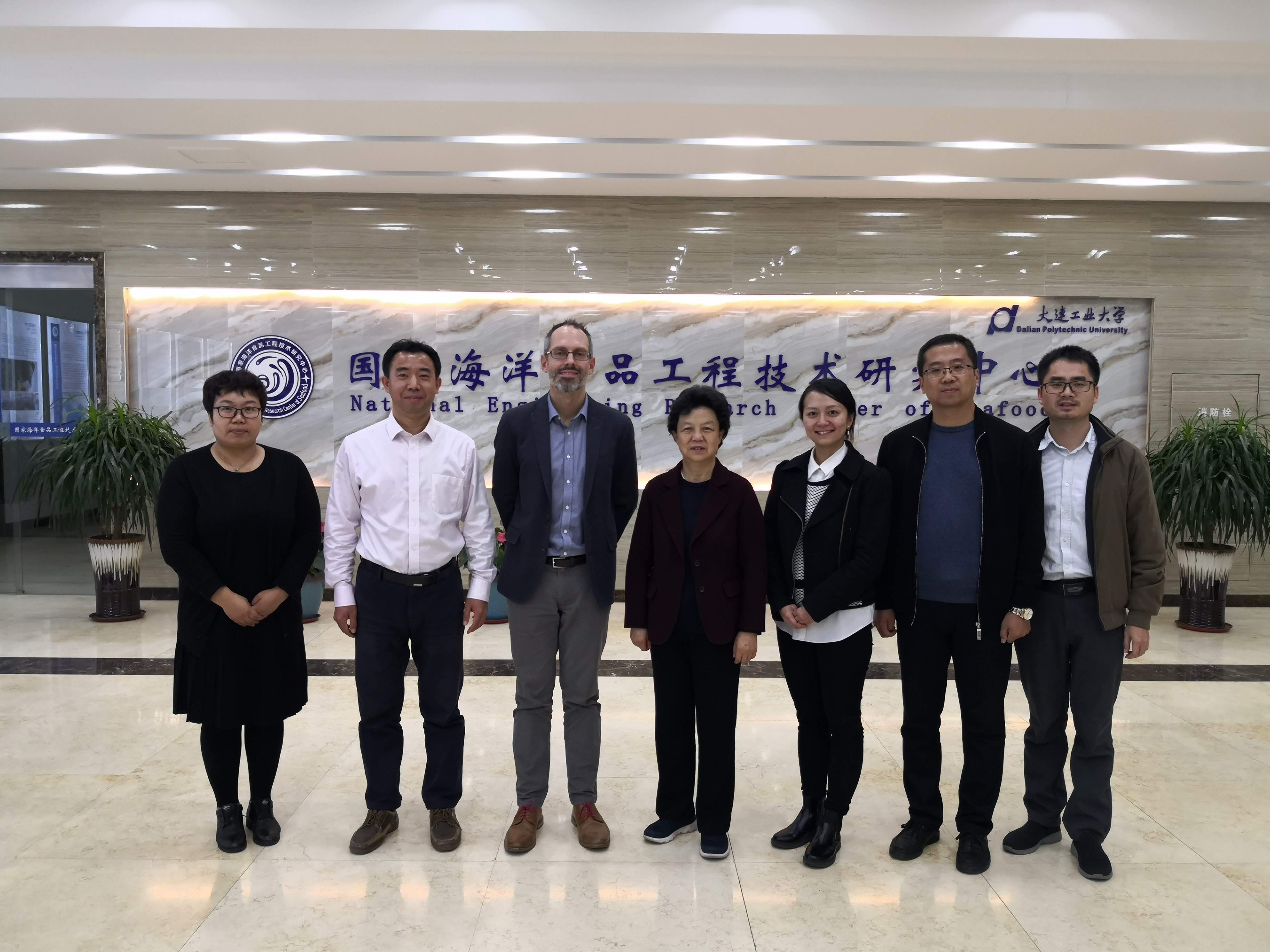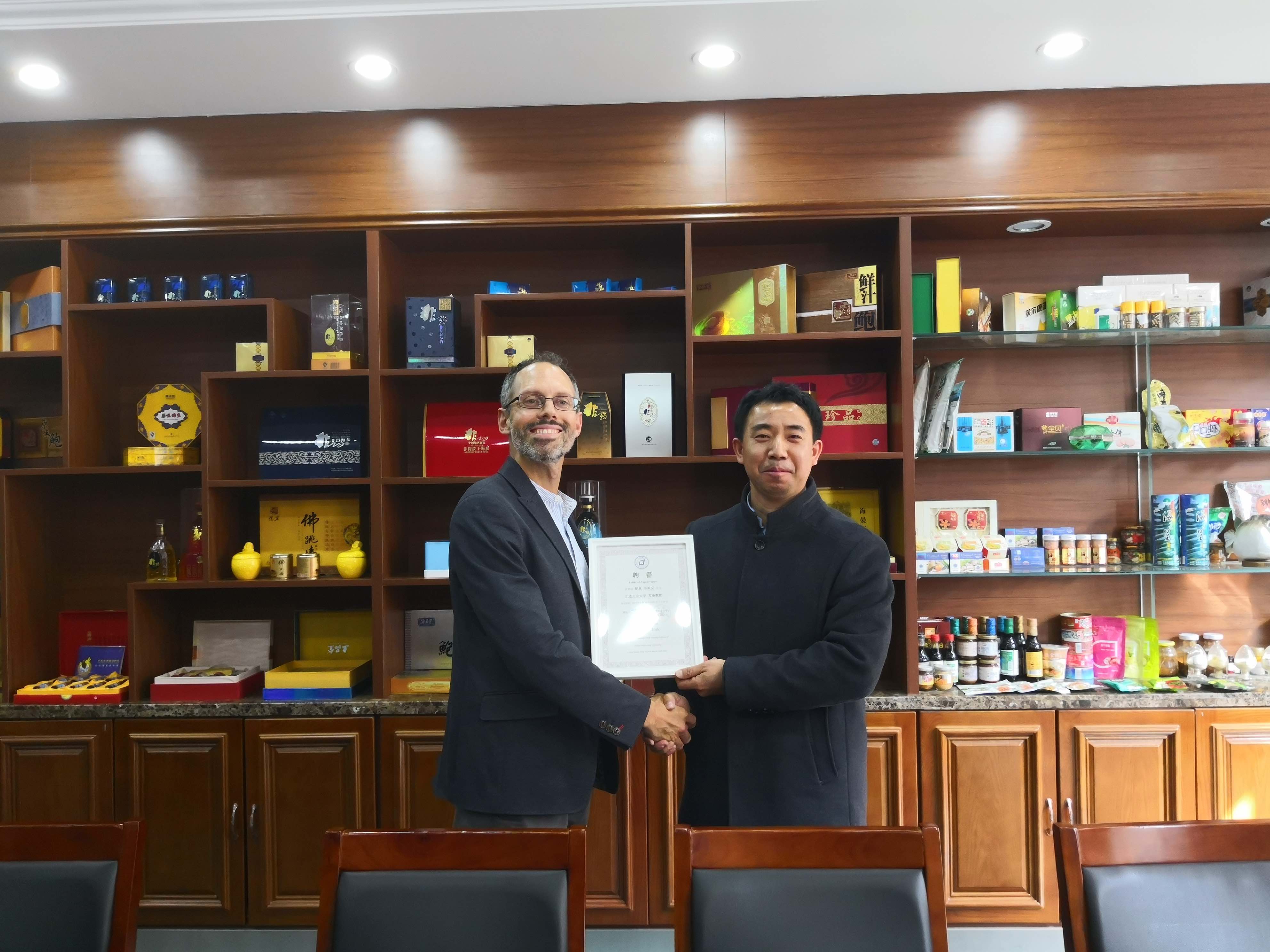An international team of Food Scientists have been awarded funding to study the flavour of one of China's most valuable marine shellfish that will help with the development of new products that appeal to consumers.
The project is a collaboration between the Flavour Group at the University of Nottingham and aquatic scientists at Dalian Polytechnic University. Funding has been awarded by the National Natural Science Foundation to study the flavour of Abalone, one of China's most highly valued marine shellfish.

The research team will be looking into how the flavour of Abalone is connected to the sense of smell and what reactions take place in the sensory system to create certain taste perceptions of Abalone. The flavour of Abalone is a complex mix of many volatile and non-volatile compounds and the scientists will examine how each of these molecules interact with proteins in our nose and how these interactions between aroma molecules and olfactory receptor proteins result in aroma, will be used to decipher and code the flavour of Abalone.
Abalone is a valuable and highly prized seafood and aroma is one of the most important quality factors of food.With the rapid development of the modern food industry in China and Asia promoting the improvement of people's living standards, consumers demand high quality food that not only has nutritional value but also health benefits, high quality texture and flavour. This project will directly contribute towards a greater fundamental understanding of how food processing can be used to generate high quality food products and apply cutting-edge molecular modelling approaches to explain the chemosensory properties of these unique high value foods, providing new ideas and strategies for the study of flavour formation and explain the mechanisms of aroma perception in complex food systems.
Professor of Flavour Chemistry Ian Fisk is leading the project in Nottingham and will be working with Dr Lei Qin who is the Principle Investigator at Dalian Polytechnic University and is engaged in aquatic product processing theory and technology at the National Engineering Research Centre of Seafood.
The project will study the fundamental aroma formation mechanisms and apply a unique olfactory coding mechanism to the process of flavour generation in abalone. The complex relationship between different aroma compounds, generated by different thermal reaction processes, and their interaction with a range of multi-target olfactory receptors will also be explained using homologous modelling and molecular docking.

This project is unique in that it offers both a fundamental insight into the basic mechanisms of flavour generation and flavour perception, but it also uses advanced molecular modelling to predict how these complex mixes of highly unstable volatile compounds interact transiently at a molecular level with receptors in the nasal mucosa.
This project builds on the existing partnership with Professor Beiwei Zhu, Academician of Chinese Academy of Engineering, Director of National Engineering Research Centre of Seafood and is a new milestone for the partnership between the University of Nottingham and Dalian Polytechnic University.
Professor Beiwei Zhu, Academician of Chinese Academy of Engineering said: "This is a key international relationship for both the University and the region. The topic is of utmost national importance and through the pioneering work of Dr Qin and Professor Fisk, we will continue to build this relationship in many future years."







